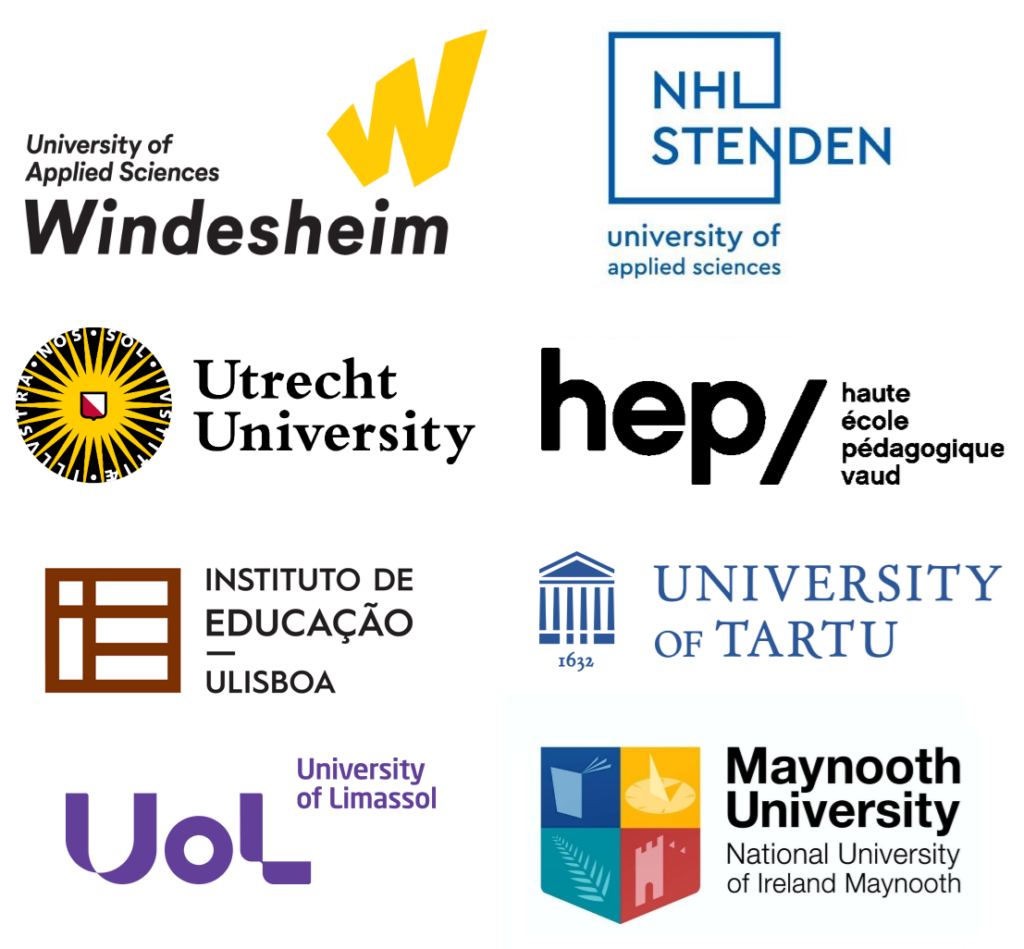LIFT Project – Lesson Study in Future Teacher Education
WP4 – Piloting and evaluation
Piloting the LIFT blueprint developed in WP3 is the main purpose of this work package. Thus, preparing, executing and evaluating the pilot implementation of the blueprint is the main goal. The results of the evaluation are valuable to update the blueprint. This main objective divides into the following sub-objectives
- Setting criteria on applicability of the LIFT Blueprint in different European cultural contexts. These criteria will include the satisfaction of teacher educators and students and the flexibility of adapting the blueprint to the various systems and cultures at the eight LIFT partners.
- Defining methods for assessing applicability of the LIFT Blueprint according to the criteria in a valid and reliable way. These methods will include means of extracting students’ and teacher educators’ experiences and opinions as well as allowing for an analysis of adaptations made to local circumstances.
- Training teacher educators as ambassadors for applying the LIFT Blueprint in their context and adapting it to their local needs. The teacher educators to be trained will be the first to apply the blueprint at their teacher training institute and will also initiate their colleagues in applying Lesson Study in teacher education.
- Applying LIFT Blueprint and collecting evidence for the applicability of the blueprint in different contexts, according to the criteria set up in this WP. Special attention will be given to its practical applicability in multiple contexts and how the necessary adaptations are possible while maintaining the basic principles (big ideas) that have been developed in WPs 2 and 3.
- Integrating evidence from the eight partner applications for applying LIFT Blueprint in different age groups, subject areas, and cultural contexts in order to provide clear recommendations for updating the blueprint to increase its practical applicability.
The main result of the activities are:
- Activity 1: Criteria and assessment instruments for evaluating the pilot implementations.Activity 2: A setup and paring as preparation for the pilot
- Activity 3: A program and materials for the training of teacher educators
- Activity 4: A delivered training to at least 16 teacher educators from all partners.
- Activity 5: Teaching materials and course designs for the eight partners that each will implement the pilot
- Activity 6: An executed pilot and a dataset containing data on the execution of the pilot, including student reports, teacher educators’ reports, quantitative data, lessons developed by the students, and student assessments.
- Activity 7: Finally, all data will be collected, processed and analysed by the three lead partners of the work package. This will lead to a report containing conclusions based on the pilot, which will provide proposed adaptations to the blueprint as well as advice for its implementation.
WP4 is led by Dr Wouter van Joolingen from Utrecht University (the Netherlands), Dr Margus Pedaste from the University of Tartu (Estonia) and Dr Maria Vrikki from the University of Limassol (Cyprus).

